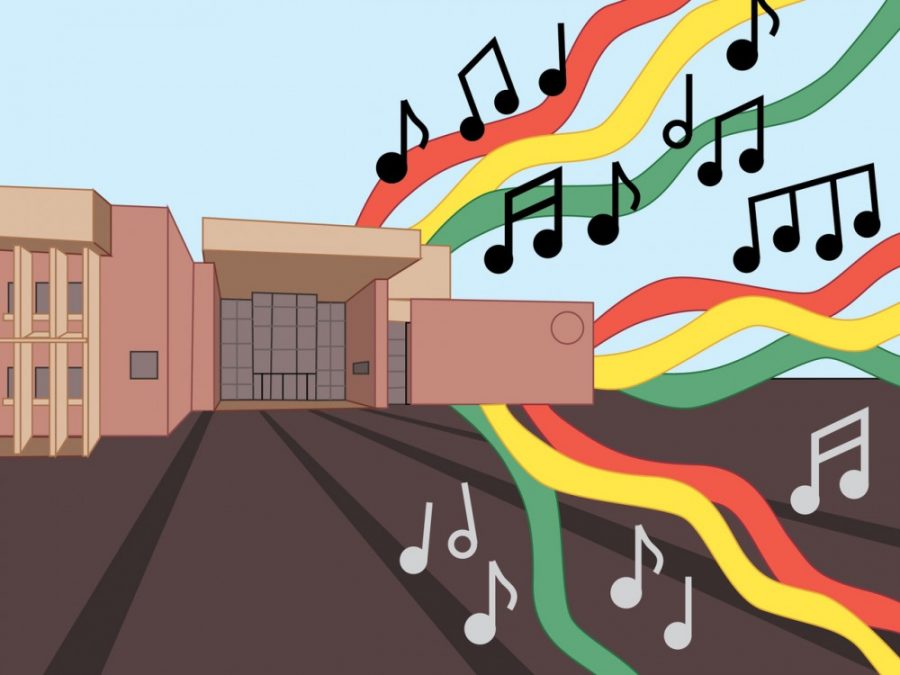The University of Minnesota’s School of Music held the nation’s first International Summer Institute for Reggae Studies last month, a significant first step in increasing the overall education and study of reggae music.
The institute is the first of its kind, creating an “outpost” for the study of reggae music, which hasn’t enjoyed the same level of attention as other genres, like jazz or classical music.
“My hope is by giving reggae a home at the University of Minnesota, it also provides a place where people can come to us with projects,” said Scott Currie, director of the institute, who said he has already gotten interest about creating a reggae archive. “There are lots of materials and lots of scholars and so forth that right now don’t have any place to go.”
During the week-long summit, participants spent the mornings digging into the “meat and bones” of how reggae is understood on an intellectual level. In the afternoon they had music workshops and at the end of the summit students opened for a concert of Third World and local reggae band, International Reggae All-Stars, on Northrop Mall.
Currie said he finds it strange that no one in the United States was already doing this, given reggae’s international prominence. The idea for the institute started with “combining scholarship at a level that’s not just recounting Jamaican music history, but actually digging into the issues and questions that it raises,” Currie said. “Reggae has been a music of struggle, sometimes revolutionary oppression, and the music of a very stigmatized minority.”
Developed from the ska music genre among others, reggae is the most prominent music in Jamaica and was widely popularized by Bob Marley, whose music is recognized internationally. Paul Shaw, a Jamaican classical pianist and professor in the School of Music, said Marley’s lyrics appealed to the downtrodden and oppressed worldwide.
“The lyrics and the philosophy of what [Marley] did drove the music, as well as his popularity,” Shaw said.
Though usually played by instruments common in a pop band, reggae has a particular beat and rhythm distinguishing it from other popular genres, Shaw said.
Some in Jamaica have expressed concerns about competing with the University, Shaw said, but he has tried to assure them the institute is a good thing and won’t “steal their thunder.” Next year he hopes to see scholars from Jamaica presenting at the institute.
Olivia Grange, Jamaica’s minister of culture, gender, entertainment and sport, welcomed the creation of the institute when she came to Minnesota last month.
“Reggae’s contribution to Jamaica’s revenue and global competitiveness has been documented but not shared enough,” Grange said, according to Jamaica’s The Gleaner. “I hope the University of Minnesota’s Institute for Reggae Studies will contribute to that body of knowledge which speaks to the outstanding economic contribution of reggae music to the global creative economy.”
For now, Currie said the focus needs to be on the intensive summer programs to increase popularity for this kind of study, but eventually he hopes to offer classes devoted to reggae during the school year.
Studying reggae will provide students with additional tools to take back to their own areas of study, Shaw said. This study could be particularly valuable for classical music students because of how reggae music is written — or more specifically how it isn’t written.
The actual writing of reggae music plays second fiddle to its creative and improvisational aspects. In reggae, documenting music comes after its creation, something Shaw said classical musicians have strayed away from.
Shaw said the University’s interest looking at reggae from a research perspective shows that it is a worthy genre of music on a similar level to jazz and classical music.
“In the 21st century, a music school should be more inclusive,” Shaw said. “It shouldn’t just be limited to the conservatory model … where you study theory and classical traditions.”
















